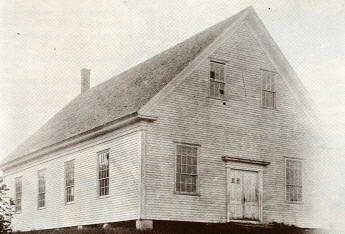I know a lot about peculiar people. Aside from being one myself, I have become a part of a unique network of people who would definitely be labeled "peculiar." When Pierce, our middle child, was diagnosed with Autism more than three years ago, we joined the ranks of many parents and children who have been affected by this odd and cruel disorder. Autism is a world of quirky behaviors, primitive communication and pervasive insecurity. The parents of Autistic children are typically divorced (80% divorce rate among Autistic parents) or struggling with their marriage, and are often times wrestling with wrapping their brains around the "why's" and "how's" of raising what seems to be the world's strangest kid. Like I said, the world of Autism is a peculiar one.




Americans soon became bored with rocket scientists and astrophysicists, and turned to a different and much less intellectual source of interest. The entertainment industry, with its L.A. studios and supermodel personalities, set the trend for culture, and for the church. The church growth movement, cognitive of the power of cool, merged high tech visual aides with casual environments and found a winning combination for relevance in the media age. Suddenly churches went from epic, institutional stone buildings to sweeping, sloping structures, emblematic of the entertainment superplexes found near suburban shopping malls. Both inside and out, the contemporary church looked like what might best be described as a marriage between a rock concert venue and a movie theatre.


Victor Lebow, a Retailing Analyst, had this to say about the effect of consumerism on spirituality: “Our enormously productive economy demands that we make consumption our way of life, that we convert the buying and use of goods into rituals, that we seek our spiritual satisfaction, our ego satisfaction, in consumption.” The interesting aspect of this is that Lebow said those words in 1942! Lebow's prophetic words are only now being understood properly as the church is becoming something of a spiritual supercenter.
We are given a distinct and original call in 1 Corinthians 1:23-25, and this call should make it pretty much impossible for us to live in this world without enormous social tension. It tells us that we are wired differently, not unlike an Autistic child, and that social interaction for us peculiar people will be an awkward venture.
"but we preach Christ crucified, to the Jews a stumbling block and to the Greeks foolishness, but to those who are called, both Jews and Greeks, Christ the power of God and the wisdom of God."
What we find here is that we are to proclaim a counterintuitive message that will cause those who think differently from us to either experience toe-stubbing discomfort or mind boggling annoyance. It doesn't mean that we run to the streets with a chip on our shoulder, seeking to counfound each passerby, but it does mean that the natural outworking of a vibrant faith is a certain amount of social discord.
So, rather than do all we can to placate and mirror the prevailing culture, doesn't it make more sense for us to embrace our peculiar calling and take our cues from Jesus and his painfully original message? How do we do that? Quite simply, we walk according to the "power" and "wisdom of God" regardless of whether it's fully embraced by our culture. We take our cues from Jesus, and we mirror Him. In so doing, we embrace an odd and alien existence which may not be properly packaged for mass consumption.
1 comment:
Well said Steve. We need to stop just trying to be as "hip" as culture, and we need to start showing culture how amazing Jesus is! We don't need t-shirts to do this. Most of the Christians music probably won't help this either. Jesus told us to love God and love other people. I promise, THAT will cause tension! That will set us apart. Because when we love other people out of the overflow of how much He loves us, people will see and hear the Gospel!
I agree that there will be tension in this way of living! People might get upset at us. People might was to debate us about the Lord's existence. We, as believers, must understand how offensive the Cross is to the world! There was blood everywhere! There was pain and suffering. Every sin that this world will ever know was there on the shoulders of Jesus. We have to understand that the grace that is found at the cross is so scandalous! People will be offending by an event that was covered in blood, but in some cosmic way it opens the door for a relationship to be possible with the Creator of the universe.
But, then again, people might want to know more about this Jesus we speak of. They might want to know a love that lasts forever. They might want to know that there is a God that loves them in spite of how much of a mess they have made. And, that tension is worth living in when people hear about Jesus, and then want Him! Living in the tension of a missional life that is focused on the Gospel is worth it when people respond in faith to the Son that is glorious and mighty! The words :"Well done" are worth it!
Post a Comment